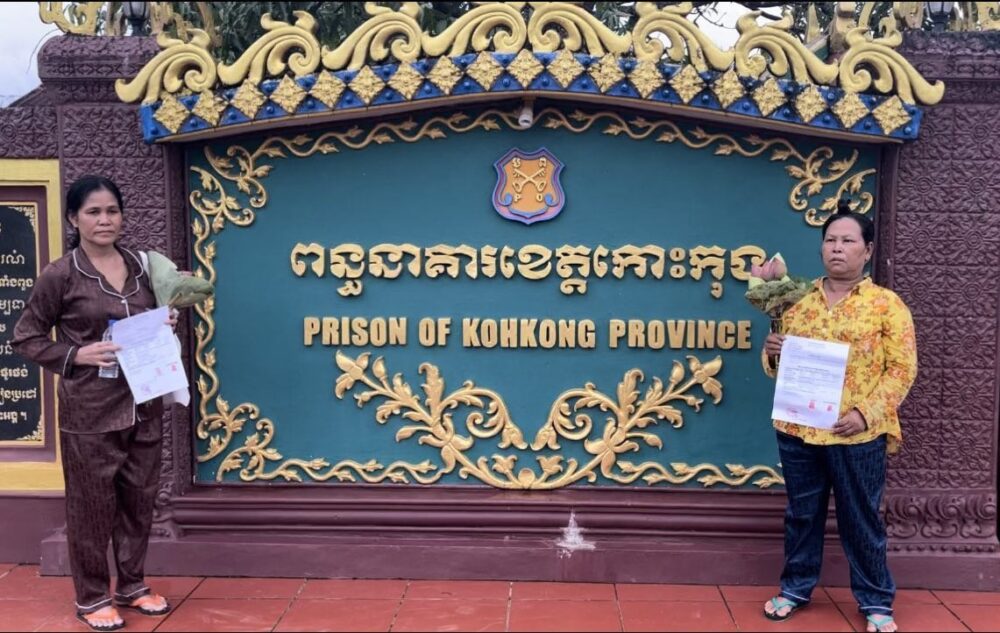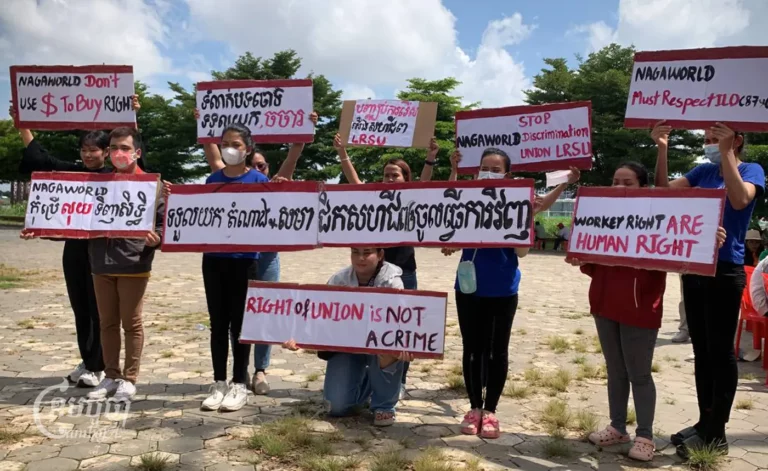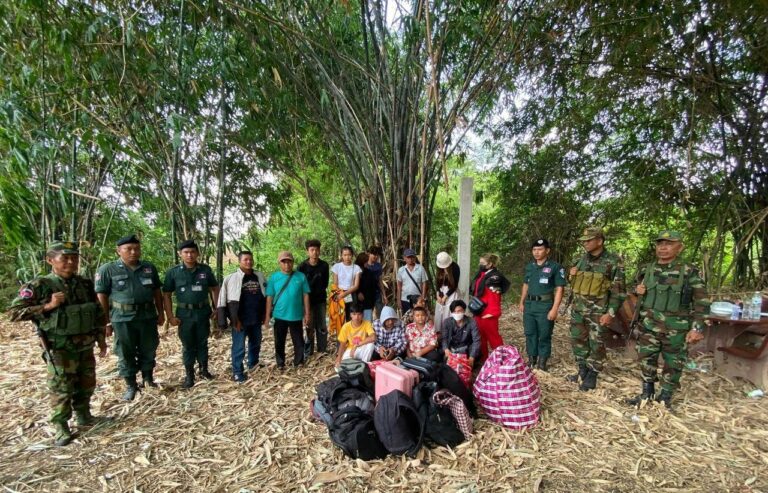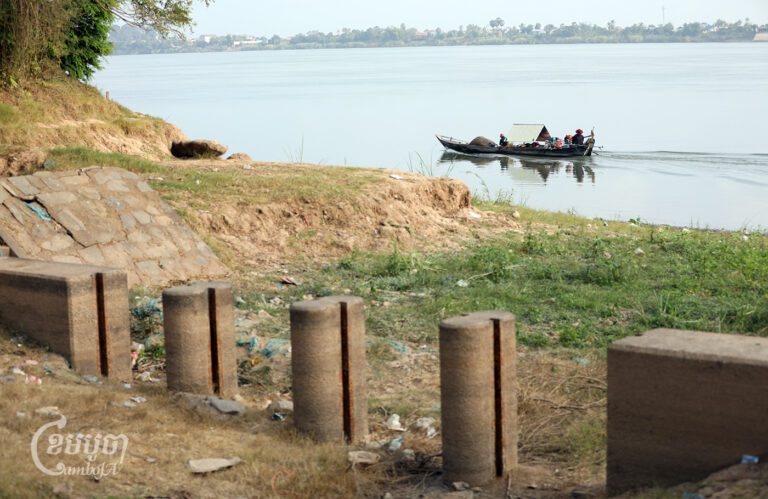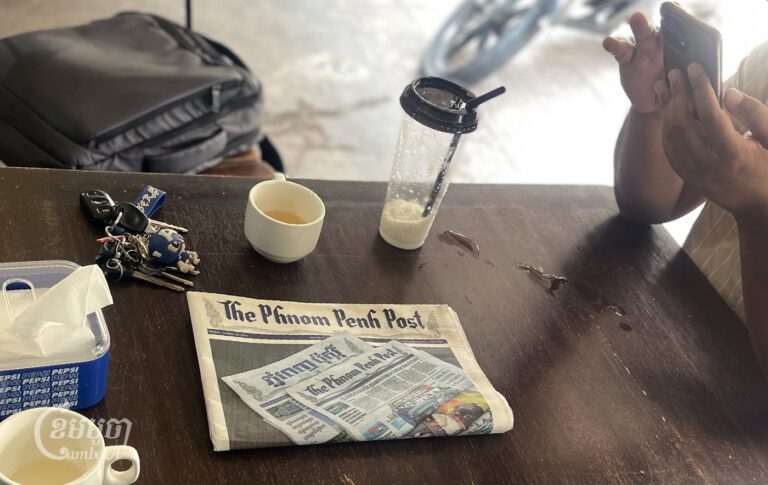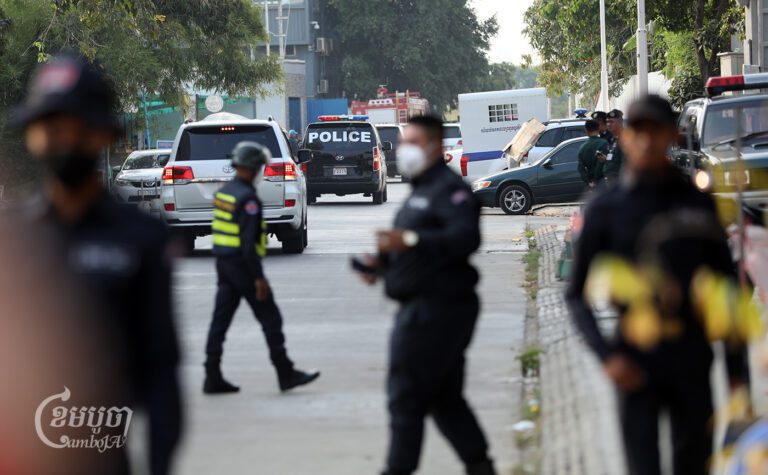Freedom of press and expression continue to be undermined in Cambodia, the Cambodian Center for Human Rights (CCHR) reports in its annual publication on the state of freedom of information, expression and press. A launch event for the report on Wednesday highlighted the voices of persecuted journalists and activists.
“If they [authorities] want the camera, give it to them. If they require you to delete the photos, we must allow them to be deleted. And if they ask us to leave, we have to leave. It is bitter in the journalism field,” said Pen Noun, a Srotob Yukvakvey journalist from Oddar Meanchey province.
From a small stage at the event, he spoke about the threats he received working as a journalist the last six years, including authorities telling him he would be sent to prison. Despite the danger, Noun is committed to staying in the field because he knows it is helpful for the people in his community.
“The freedom today is not good. From one year to another year, from one mandate to another mandate, the restriction on press freedom is becoming more restricted,” he said.
CCHR staff conducted daily media monitoring as well as interviews with journalists and human rights defenders, looking at the period from September 2022 through August 2023. At least 16 journalists and 100 human rights defenders faced legal action during this time.
“The country continues its worrying trend of over-policing free speech and silencing critical voices, a repression that was exacerbated ahead of the July 2023 general election,” the report said. “Intimidation, surveillance, threats, or judicial harassment are also used on a regular basis to target those who dare to speak up.”
The report covers legislative developments over the last year, including amendments to election laws made just weeks before the July elections that further restricted freedom of expression in the country.
The publication also chronicles a series of media licenses being revoked by the government, including that of Voice of Democracy in February which received international attention. The government ordered ISPs to block access to the websites and social media accounts of Cambodia Daily, Radio Free Asia and Kamnotra in July.
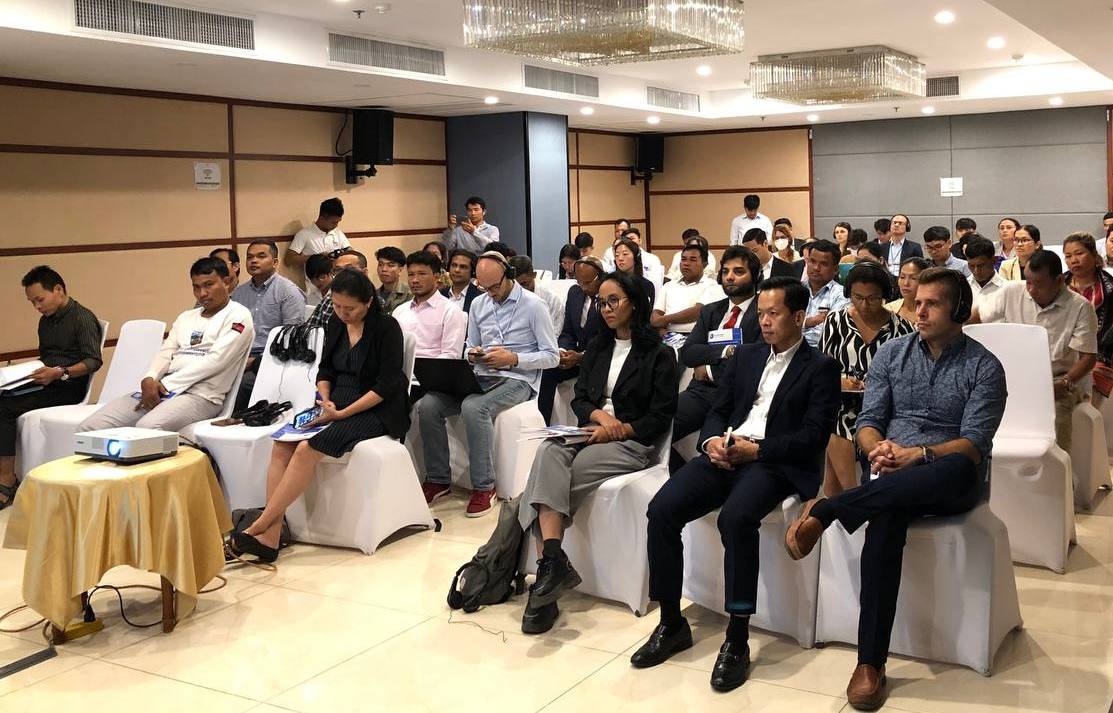
Physical attacks on human rights defenders and journalists occurred in the last year, as documented in the report. Three assailants on motorbikes attacked a land activist from Tboung Khmum province, leaving him with a gash on his face and other injuries. A Mongabay reporter was physically detained and dragged across a street while talking to soldiers in Kampong Speu province.
CCHR project coordinator Houn Phon said that some journalists the team interviewed censored themselves in their reporting, avoiding sensitive topics such as corruption and land issues for fear of repercussions.
“In the present day, citizens also self-censor. They restrict themselves from providing the information to journalists, so the journalists cannot get the information,” he said. “The restriction of press freedom does not just affect the media but all general people.”
Land activist Phav Nheung, who traveled from Koh Kong to speak at the event, talked about being imprisoned after organizing protests to support the land rights of farmers in her community.
“I expressed myself to inform the government in order to have a land solution [for the dispute], but I was charged with defamation and sentenced to 99 days,” she said. “I will be happy if the human rights laws and treaties are practiced with their principles, so maybe I would not have been imprisoned.”
She told attendees that Cambodian society today does not provide a safe place where people have the right to speak. The government should try to solve problems rather than arresting citizens and sending them to prison, she said.
After passionate speeches from members of the press and activists, a representative of the government’s Cambodian Human Rights Committee (CHRC) shared his reaction to the report during the question and answer session.
“If we just only note the cases and we then make conclusions, how accurate is that about freedom of expression, and press freedom?” Sreang Chenda with CHRC asked. “In Cambodia, there are around 2000 media outlets, and this report interviewed four to 10 people.”
The report states that CCHR conducted 33 interviews with journalists and human rights defenders.
In response, Phorn said the nonprofit verified the accuracy of the cases reported by collecting information from other relevant parties to determine if the incidents did in fact violate international human rights standards.


